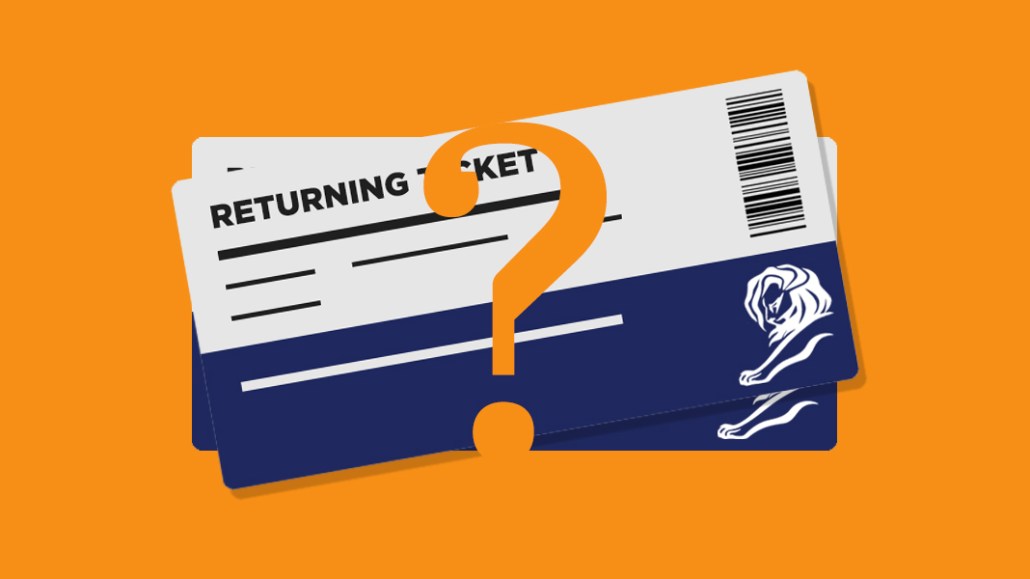Secure your place at the Digiday Media Buying Summit in Nashville, March 2-4

Digiday covers the latest from marketing and media at the annual Cannes Lions International Festival of Creativity. More from the series →
This week, our top articles highlighted the Cannes Lions, examined MediaLink and more. As always, a full list of these stories appears at the bottom.
Cannes takeaways
We spent the week at Cannes chatting with media, marketing and tech execs. Here are three things we learned:
- Cannes risks losing its core constituency in advertising agencies. WPP CEO Martin Sorrell noted the festival started as a way for French agencies to celebrate their work. Now, Cannes is more of a giant rosé-fueled networking orgy, and agencies are grumbling. Publicis Groupe decided to forgo the festival next year. WPP is questioning its commitment to the event, with Sorrell saying Cannes has “lost the plot.”
- The brand-safety backlash is somewhat real. Both Google and Facebook have trust issues with marketers and publishers. “In terms of brand safety, you couldn’t think of a more dangerous environment,” New York Times CEO Mark Thompson said at a panel discussion. “A monster has been created.” Expect the pendulum to swing back to context and quality after a long obsession with audience targeting.
- Snapchat has work to do. The cool factor wears off. It will attract attention from ad buyers, but eventually new players must deliver.
Oh the irony: Snapchat is going to totally win Instagram at the #canneslions this week.
MediaLink makes connections amid criticism
One company that has thrived on Cannes’ lavishness is consulting firm MediaLink, which has become synonymous with Cannes, positioning itself as an alternative center to the festival with its own slate of programming and parties. It said it would set up 800 meetings for clients during Cannes alone.MediaLink’s role at the festival is a window into what the company does — transacting on relationships. It offers consulting and business management services, executive search, mergers and acquisitions strategy, and agency reviews. But the dynamic between its recruiting services and agency reviews has spawned accusations that MediaLink creates conflicts of interest, then benefits from them.
“There is always that expectation,” said a former MediaLink exec. “If they place somebody, [founder Michael Kassan] would be the first person to call them and be fairly transparent: ‘We put you in the job, and you need a lot of help.’”
Reebok’s interpretation of ‘influencer’
Influencer marketing has become increasingly complex, with a variety of ways for brands to work with influencers. Reebok has approached it differently than most retailers to promote its Floatride Run, one of its priciest running shoes at $150 a pair. Despite the cost, Floatride in just three months has become Reebok’s highest-rated and No. 4 best-selling sneaker on the company’s website. Reebok has a network of 1,200 running experts to thank for this.Reebok let sneaker salespeople and running club instructors test the shoes for free, then collected their reviews through review software platform Bazaarvoice before the product launch.
“Influencers [is] a broad term. For us, they are not just people with 100,000 followers on Instagram,” said David Pike, associate manager of brand management for Reebok. “When people see customer reviews for a new product, they feel more informed and confident to buy.”
Interesting takes elsewhere:
- The New York Times’ Farhad Manjoo writes about the power of campaigning online against brands.
- BuzzFeed News’ Charlie Warzel reports on Sleeping Giants’ mobile billboard that requests Amazon pull its ads from Breitbart News.
- New York magazine’s Clint Rainey delves into Amazon’s reported plans to cut jobs at Whole Foods.
This week’s top Digiday stories:
- Cannes Briefing: 5 things we learned on the Riviera
- The New York Times CEO on state of digital advertising: ‘Nightmarish joke’
- The ultimate industry connector, MediaLink wants to get deeper
- How Reebok used influencer reviews to break into the competitive running category
- Influencer marketing is becoming more standardized
- Consulting firms are crashing the party in Cannes
- How The Times of London grew its registered users to 1.2 million
More in Marketing

WTF are tokens?
When someone sends a prompt or receives a response, the system breaks language into small segments. These fragments are tokens.

AI is changing how retailers select tech partners
The quick rise of artificial intelligence-powered tools has reshaped retailers’ process of selecting technology partners for anything from marketing to supply chain to merchandising.

YouTube’s upmarket TV push still runs on mid-funnel DNA
YouTube is balancing wanting to be premium TV, the short-form powerhouse and a creator economy engine all at once.





